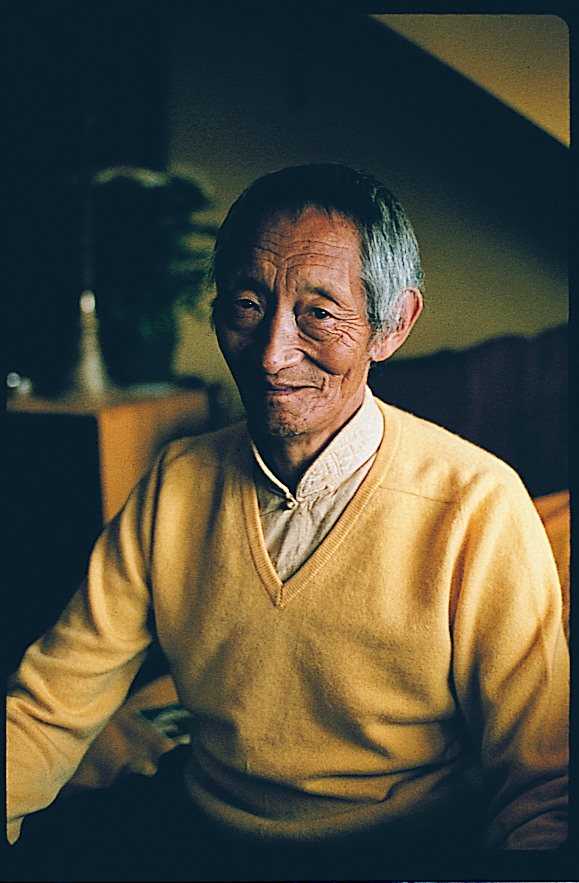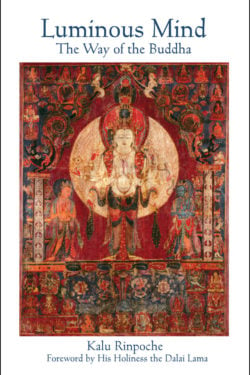Kyabje Kalu Rinpoche

Kyabje Kalu Rinpoche (1904–89) was widely acclaimed as one of the greatest living examplars of the Tibetan Buddhist tradition of meditative contemplation. A leader of the Shangpa Kagyu school of Tibetan Buddhism, Kalu Rinpoche traveled extensively throughout Tibet, Bhutan, India, and the West, instructing countless disciples in the esoteric traditions of Dzogchen and Mahamudra.
Books, Courses & Podcasts
Luminous Mind
Luminous Mind is a remarkable compilation of the oral and written teachings of the late Kalu Rinpoche – who was called “a beacon of inspiration” by the Dalai Lama. A master of meditation and leader of the Shangpu Kagyu school of Tibetan Buddhism, Kalu Rinpoche taught with an inviting, playful and lucid style that was just one natural manifestation of his own profound realization. The teachings presented in Luminous Mind are immediate and timeless.
As the Dalai Lama notes in his foreword, Luminous Mind covers “the full range of Buddhist practice from the basic analysis of the nature of the mind up to its ultimate refinement in the teachings of Mahamudra.” This anthology of Kalu Rinpoche’s writings and oral teachings resonates with his wisdom and compassion.
Comparing Kyabje Kalu Rinpoche with Milarepa, the greatest mediation master Tibet has ever known, His Holiness the Dalai Lama extols the author of Luminous Mind as a “beacon of inspiration” for spiritual practitioners of all traditions. Noting that “there have been few like him before or since,” His Holiness urges us to delve into this remarkable anthology of the late Kalu Rinpoche’s essential instructions so that we may encounter “the full range of Buddhist practice from the basic analysis of the nature of the mind up to its ultimate refinement in the teachings of Mahamudra.” Drawn from both his lucid writings and his eloquent oral presentations, this unprecedented book lays bare the full grandeur of Kalu Rinpoche’s legacy. At the same time, the gentle words and playful stories of this master of meditation are filled with a depth of clarity and warmth that could only arise from a profound realization of both wisdom and compassion.

